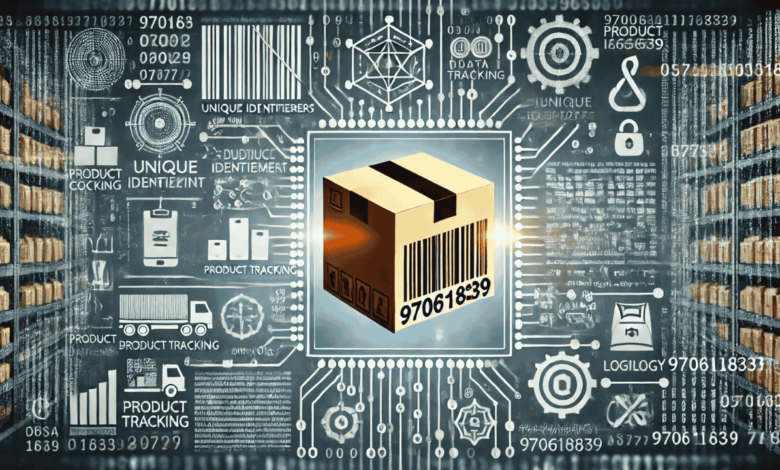Look around at the world of modern business—what’s keeping it all seamlessly connected, synchronized, and running like clockwork? The answer often lies in something deceptively simple yet incredibly powerful: unique identifiers. These special codes, like “970616839,” may fly under the radar in everyday conversation, but they are the unsung heroes of an increasingly data-driven world. From streamlining operations to transforming customer experiences, unique identifiers are reshaping businesses across industries.
What are unique identifiers, and why are they so pivotal for organizations? This blog explores how these small alphanumeric sequences create big efficiencies in operational processes, helping businesses thrive in a competitive landscape.
What Are Unique Identifiers?
A unique identifier, often abbreviated as UID or ID, is a string of characters (letters, numbers, or a combination) that is assigned to a single entity within a system. Think of it as a digital fingerprint—unique to just one customer, product, transaction, or dataset.
For example, the code “970616839” could represent a specific customer account in a database, a product in an inventory system, or even a package making its way through a supply chain. Each unique identifier ensures that no two items confuse or overlap, maintaining clarity and precision across systems.
Common Types of Unique Identifiers:
- Order numbers for tracking sales
- Customer IDs for personalizing user experiences
- Product barcodes for managing inventory
- Transaction IDs for secure payments
- Serial numbers for warranty tracking and repairs
Why Businesses Need Unique Identifiers More Than Ever
Unique identifiers aren’t just convenient—they’re essential in today’s complex operational environment. Here’s why these codes are revolutionizing the way organizations work:
1. Simplifying Data Organization
Imagine trying to manage thousands (or even millions) of customer accounts without individual markers. Unique identifiers bring order to chaos, ensuring no data point gets lost. By assigning a unique ID to each record, businesses can quickly find and retrieve critical information without sifting through an avalanche of data.
Expert Insight: Data scientist Maria Geller adds, “Unique identifiers are the foundation for organizing digital databases. Whenever you conduct advanced analysis, the reliability and accuracy of your results often come down to how effectively the data was labeled.”
2. Enhancing Customer Experiences
Knowing your audience is everything in today’s competitive landscape. Unique identifiers empower businesses to create personalized customer journeys by linking each person to individual preferences, histories, and behaviors. This means striking the perfect balance between efficiency and personalization.
For example:
- A loyalty program tracking purchases using Customer ID 970616839 ensures the customer always gets the right discounts.
- A flight reservation system quickly retrieves seat preferences using a Passenger Unique ID.
Pro Tip: Use these identifiers to offer hyper-specific services, whether that’s a personalized discount email or a curated product recommendation page.
3. Streamlining Supply Chain Management
The global supply chain is a web of interconnected movements, and unique identifiers hold it all together. From production to shipping to final delivery, unique codes enable businesses to track every step of the process.
Consider this scenario:
- A company’s inventory system uses identifiers like SKU970616839 to monitor stock levels in real-time across multiple warehouses.
- The same identifier is scanned during shipping and delivery, ensuring accurate fulfillment.
Without these codes, imagine how easily products could get misplaced. Scary, right?
4. Guaranteeing Data Security
Data breaches and hacks are a growing concern for businesses. Unique identifiers can add an extra layer of security to sensitive information by encrypting internal systems. For example:
- At checkout, a Transaction ID replaces actual credit card numbers in records, reducing the risk of exposure.
- User accounts are mapped with system-created User IDs instead of names, securing anonymity.
5. Powering Automation
Automation thrives on consistency, and unique identifiers offer just that. Want to automate subscription renewals or refund processes? Assign unique codes to transactions. Want to schedule routine maintenance checks on machinery? Track repairs by serial number. When identifiers are used strategically, automation becomes seamless.
Apply This: Think of automation opportunities in your workflow. How can unique IDs like “970616839” replace manual intervention?
Five Business Functions Transformed by Unique Identifiers
Customer Service
When customers call in with an order ID like “970616839,” support staff can instantly pull up the relevant information, reducing wait times and improving satisfaction. Unique identifiers ensure every customer query is addressed personally and accurately.
Marketing
Segmenting audiences for your next campaign? Unique identifiers tied to customer behavior and purchase history make targeting campaigns as simple as inputting a code.
E-commerce
From website searches to return processes, unique identifiers like SKU numbers or tracking IDs keep e-commerce systems efficient and user-friendly.
Human Resources
Ever checked an employee payroll record or performance metric? Unique employee identifiers streamline reviews, onboarding, and more.
Healthcare
Unique patient IDs safeguard sensitive medical records while ensuring speed during emergencies. Imagine needing medical records fast, and “Patient1908392” has every diagnosis and test linked in one place.
How to Implement Unique Identifiers in Your Business
Jumping into using unique identifiers for the first time may seem daunting, but fear not. Here’s a step-by-step guide to help you implement them seamlessly:
1. Evaluate Your Needs
Consider what functions will benefit from unique identifiers. Is it inventory, customer data, or workflows?
2. Choose the Right Format
Decide whether numeric, alphanumeric, or custom formats work best. For example:
- Numeric-only (e.g., 970616839): Great for simplicity
- Alphanumeric (e.g., AB97061): Adds flexibility
3. Standardize Across Platforms
Ensure that identifiers are consistent within your CRM, websites, and external systems. Consistency reduces confusion.
4. Utilize Automation Tools
Software like ERP systems can auto-generate unique identifiers tailored to your needs, so you don’t have to track them manually.
5. Train Your Team
Even well-designed systems fail without proper usage. Train each department to understand and utilize unique identifiers effectively.
Moving Forward with Unique Identifiers
Unique identifiers, like “970616839,” are no longer a nice-to-have feature—they’re a must-have foundation in business and data operations. By simplifying workflows, enhancing security, and unlocking automation potential, identifiers create a more streamlined and competitive company.
To thrive in today’s data-rich world, your business must adopt smarter systems. Are you ready to revolutionize your operations with unique identifiers? Start mapping your processes today and watch the transformation unfold.
Conclusion
Unique identifiers are more than just numbers—they are the backbone of modern, efficient, and secure data management systems. By integrating these markers into your processes, you pave the way for automation, scalability, and smarter decision-making. The ability to track, manage, and secure data seamlessly is no longer optional in a world driven by information. It’s time to take the next step, invest in robust systems, and unlock the full potential of your business. The future of operational excellence begins with a single, powerful identifier.
FAQs
Q1: What are unique identifiers?
A: Unique identifiers are distinctive codes, numbers, or symbols assigned to data, objects, or entities to make them easily recognizable and distinguishable. They ensure consistent tracking, management, and automation in data-driven environments.
Q2: Why are unique identifiers important for businesses?
A: Unique identifiers streamline operations by preventing duplication, enhancing data security, and enabling seamless tracking. They are integral to automating processes, scaling operations, and improving decision-making.
Q3: How do unique identifiers enhance security?
A: By assigning specific identifiers to each data point or entity, businesses can improve traceability and accountability. This reduces the risk of errors and unauthorized access while ensuring higher data integrity.
Q4: Can small businesses benefit from unique identifiers?
A: Absolutely! Unique identifiers are scalable and can help small businesses manage data efficiently, reduce manual errors, and set the foundation for long-term growth and automation, regardless of their size.
Q5: How do I start implementing unique identifiers in my processes?
A: Begin by assessing your operations to identify areas where unique identifiers can bring value. Then, choose a system or software solution aligned with your needs, and gradually integrate it into your workflows while ensuring proper training for your team.






